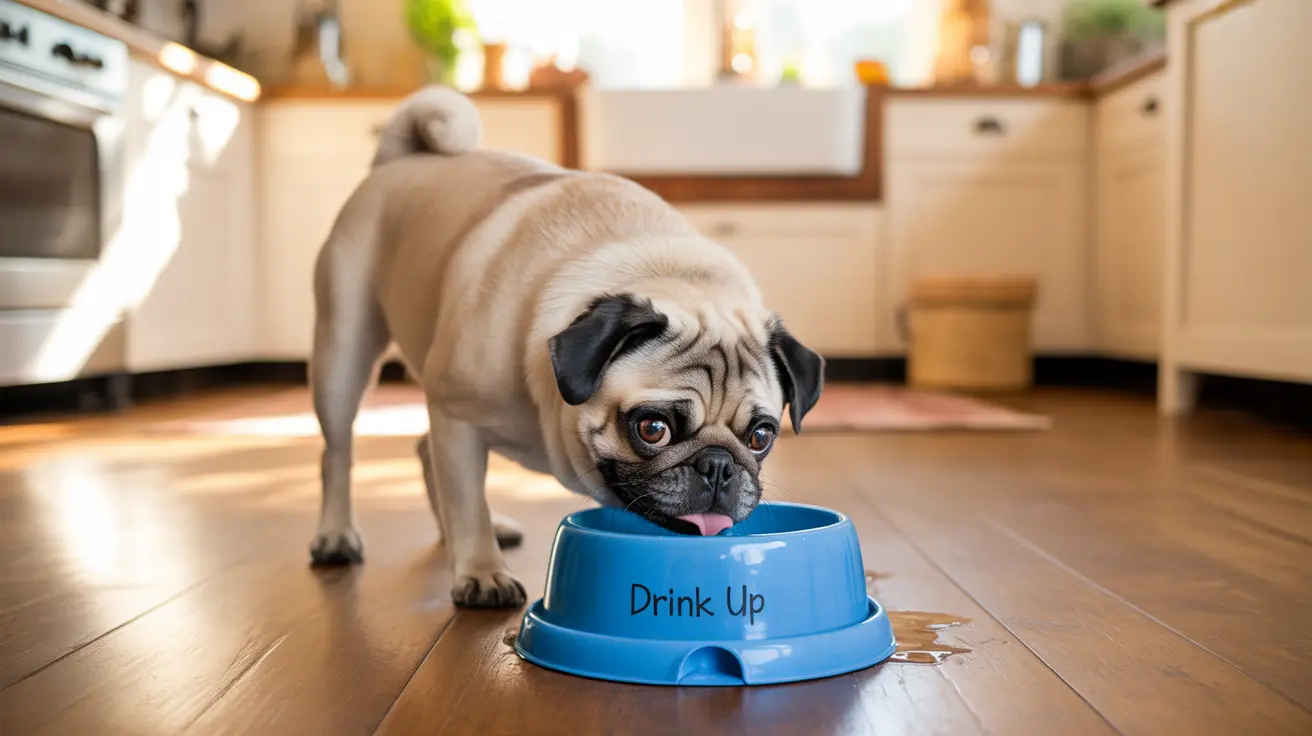If you've ever noticed your dog gagging or coughing after taking a drink, you're not alone. This common behavior can range from a simple swallowing mishap to a sign of underlying health issues. Understanding why dogs gag after drinking water and knowing when to be concerned can help ensure your pet's wellbeing.
In this comprehensive guide, we'll explore the various causes of post-drinking gagging in dogs, identify warning signs that require veterinary attention, and provide practical solutions to help manage this issue.
Common Reasons Why Dogs Gag After Drinking Water
Drinking Too Fast
The most common reason dogs gag after drinking water is simply drinking too quickly. When dogs gulp water rapidly, they may accidentally inhale some liquid into their airway, triggering a protective coughing or gagging reflex to clear the passage.
This is especially common in excited dogs, those who've just finished exercising, or breeds with shortened muzzles who may have more difficulty coordinating their drinking.
Anatomical Issues
Some dogs may experience gagging due to their physical structure. Brachycephalic breeds (those with flat faces) often have anatomical features that make them more prone to gagging, including:
- Shortened airways
- Elongated soft palates
- Narrowed tracheas
Medical Conditions That Can Cause Gagging
Tracheal Collapse
This condition, more common in small breeds, occurs when the cartilage rings in the trachea weaken and collapse. Dogs with this condition often show increased gagging or coughing when drinking, especially if they're excited or drinking quickly.
Laryngeal Paralysis
Typically affecting older, larger breeds, laryngeal paralysis prevents the larynx from closing properly during swallowing. This can lead to frequent gagging and coughing episodes, particularly during or after drinking water.
Prevention and Management Strategies
There are several effective ways to help prevent your dog from gagging after drinking water:
- Use a slow-feeder water bowl
- Provide smaller amounts of water more frequently
- Monitor drinking speed and encourage slower consumption
- Consider raised water bowls for larger breeds
- Keep water bowls clean to prevent irritants
When to Seek Veterinary Care
While occasional gagging after drinking isn't usually serious, certain symptoms warrant immediate veterinary attention:
- Persistent gagging or coughing that lasts more than 24 hours
- Difficulty breathing
- Blue-tinged gums
- Loss of appetite
- Lethargy or weakness
- Blood in saliva or mucus
Frequently Asked Questions
Why does my dog cough or gag right after drinking water?
Dogs typically cough or gag after drinking water because they've drunk too quickly and some water has entered their airway instead of their esophagus. This triggers a natural reflex to clear the airway and protect the lungs.
When should I be worried if my dog frequently coughs after drinking water?
Be concerned if the coughing is persistent, worsening over time, accompanied by difficulty breathing, or if your dog shows signs of distress. These symptoms could indicate an underlying medical condition requiring veterinary attention.
How can I help prevent my dog from coughing after drinking water?
Use slow-feeder water bowls, provide smaller amounts of water more frequently, and ensure your dog drinks calmly, especially after exercise. For some dogs, raised water bowls may also help.
Could my dog's cough after drinking water be caused by a medical condition like tracheal collapse or laryngeal paralysis?
Yes, persistent coughing after drinking could indicate conditions like tracheal collapse or laryngeal paralysis, especially in certain breeds or older dogs. A veterinary examination can determine if these conditions are present.
What are the signs that coughing after drinking water means my dog needs to see a vet immediately?
Seek immediate veterinary care if your dog shows difficulty breathing, blue-tinged gums, excessive drooling, weakness, or if the coughing is severe and persistent. These could indicate serious underlying conditions requiring prompt medical attention.
Remember, while occasional gagging after drinking water is usually harmless, persistent symptoms should always be evaluated by a veterinarian to ensure your dog's health and comfort.






